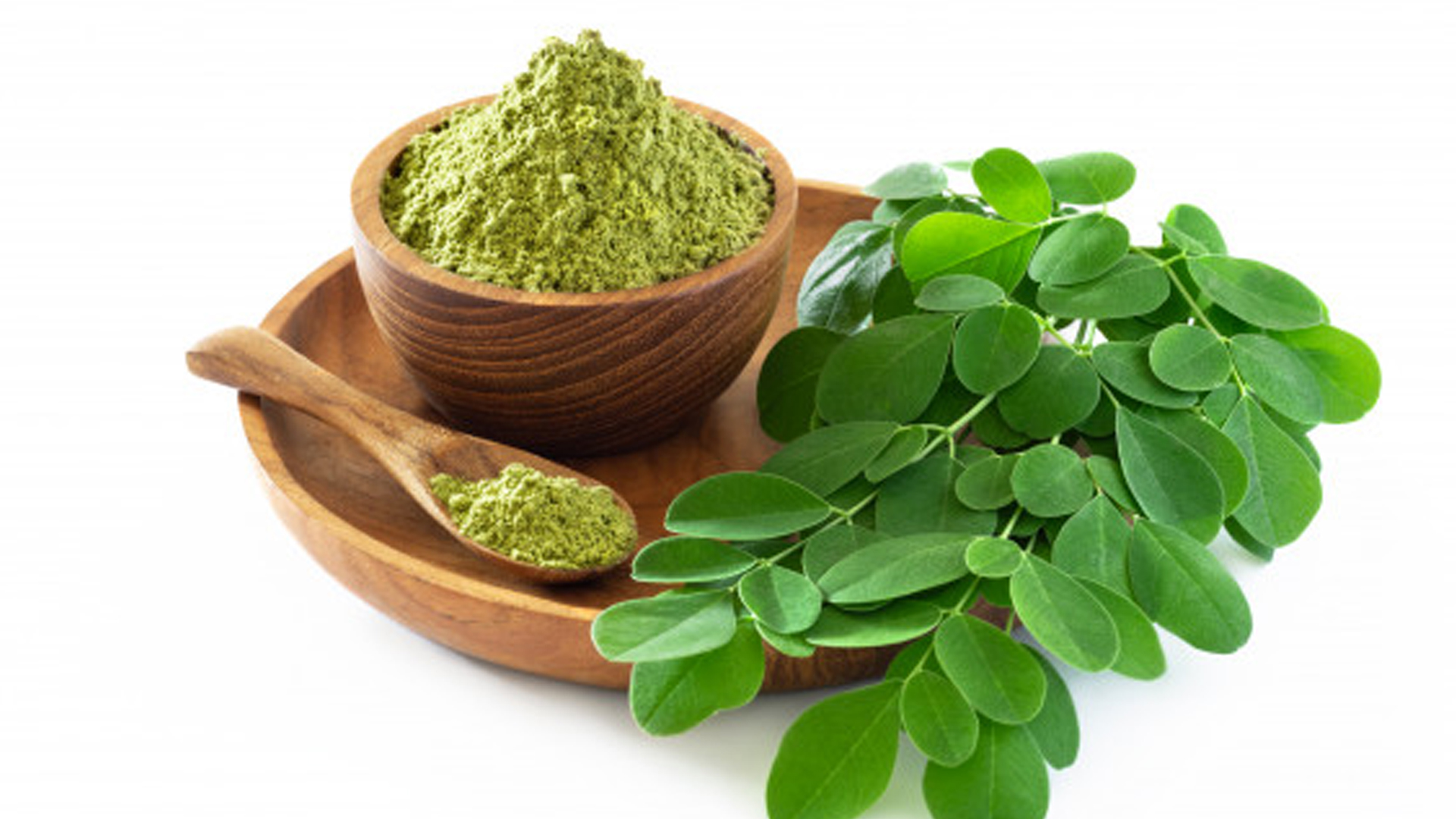Elevate Your Daily Diet with Moringa Magic - Simple Tips for Incorporating Nature's Superfood
Moringa, often hailed as a superfood, is packed with a multitude of health benefits. Here’s a summary of the key benefits:
Nutrient-Rich: Moringa leaves are loaded with vitamins A, B1, B2, B3, B6, C, and minerals like calcium, potassium, iron, magnesium, phosphorus, and zinc.
Antioxidant Powerhouse: It contains antioxidants that help protect cells from damage and may reduce inflammation.
Supports Skin and Hair Health: Moringa seed oil is beneficial for skin and hair, promoting healing and potentially reducing oxidative stress.
Liver Protection: It might help protect the liver against diseases like nonalcoholic fatty liver disease by lowering cholesterol and triglyceride levels.
Cancer Prevention: Compounds in moringa, such as niazimicin, may suppress the development of cancer cells.
Digestive Health: Moringa can aid in treating stomach disorders, act as a laxative, and may help prevent peptic ulcers due to its antibiotic and antibacterial properties.
Diabetes Management: It is taken for managing blood glucose levels, making it beneficial for people with diabetes.
Bone Health: High in calcium and phosphorus, moringa helps strengthen bones.
Immunity Booster: The high vitamin C content and other nutrients boost the immune system.
Heart Health: It may help in maintaining a healthy heart by preventing the buildup of plaque in the arteries and reducing cholesterol levels.
Anti-inflammatory: Moringa has anti-inflammatory properties that can help treat conditions like arthritis.
May Aid in Weight Management: Some research suggests that moringa extract may help suppress appetite and promote fat breakdown, potentially aiding in weight loss efforts.
How can I incorporate moringa into my diet?
Incorporating moringa into your diet is easy and can be done in various ways. Here are some simple and delicious ways to add moringa to your meals and snacks:Smoothies: Blend moringa powder with your favorite fruits, vegetables, and liquids (such as water, coconut water, or almond milk) to create a nutritious and energizing smoothie. You can also add protein powder, nuts, seeds, or nut butter for added flavor and protein.
Tea: Steep dried moringa leaves or moringa powder in hot water to make a soothing and antioxidant-rich tea. You can enhance the flavor by adding a squeeze of lemon, a dash of honey, or other herbs and spices like ginger or cinnamon.
Salads: Sprinkle dried moringa leaves or moringa powder over salads for an extra boost of nutrients. Moringa adds a mild, earthy flavor and pairs well with fresh greens, vegetables, nuts, seeds, and a drizzle of olive oil and vinegar.
Soups and Stews: Stir dried moringa leaves or moringa powder into soups, stews, and broths during the cooking process to infuse them with added nutrition. Moringa blends well with savory flavors and can complement a wide range of soup ingredients.
Stir-fries: Add dried moringa leaves or moringa powder to stir-fries and sautés for a nutritious twist. Simply toss moringa into the pan along with your favorite vegetables, proteins, and seasonings for a quick and healthy meal.
Baked Goods: Incorporate moringa powder into baked goods such as muffins, pancakes, waffles, and bread for a nutritious boost. You can replace a portion of the flour with moringa powder or mix it into the batter for vibrant green treats.
Energy Balls: Mix moringa powder with dates, nuts, seeds, and other ingredients to make homemade energy balls or bars. Roll the mixture into bite-sized balls and refrigerate for a convenient and nutritious snack on the go.
Sauces and Dressings: Blend moringa powder into homemade sauces, dressings, dips, and spreads for added nutrition and flavor. Moringa pairs well with ingredients like garlic, lemon juice, tahini, yogurt, and herbs.
Remember to start with small amounts of moringa and gradually increase as desired to avoid overwhelming the flavor. Experiment with different recipes and find creative ways to incorporate moringa into your favorite dishes to enjoy its numerous health benefits.
Some side effects of consuming moringa:While moringa is generally considered safe for most people when consumed in moderate amounts, there are a few potential side effects and considerations to keep in mind:
Digestive Upset: Some individuals may experience mild digestive discomfort, such as nausea, diarrhea, or stomach cramps, especially when consuming large amounts of moringa or if they have a sensitive stomach.
Interactions with Medications: Moringa may interact with certain medications. For example, it may enhance the effects of diabetes medications or blood pressure-lowering drugs, leading to hypoglycemia or hypotension. If you are taking any medications, especially for diabetes or hypertension, consult your healthcare provider before adding moringa to your diet.
Potential Allergic Reactions: In rare cases, individuals may be allergic to moringa. Symptoms of an allergic reaction may include itching, rash, swelling, difficulty breathing, or anaphylaxis. If you experience any allergic symptoms after consuming moringa, discontinue use and seek medical attention.
Risk of Contamination: Moringa supplements or products may be contaminated with harmful substances such as heavy metals, pesticides, or microbes if not sourced from reputable suppliers. To minimize this risk, choose products from trusted brands that undergo quality testing and adhere to safety standards.
Pregnancy and Breastfeeding: While moringa is generally considered safe for most adults, there is limited research on its safety during pregnancy and breastfeeding. It's best to err on the side of caution and avoid moringa supplements or large amounts of moringa during these periods, as the effects on fetal development and infant health are not well understood.
Blood Clotting: Moringa contains compounds that may have anticoagulant effects, meaning they can thin the blood and inhibit clotting. Individuals taking blood-thinning medications (anticoagulants) should use caution when consuming moringa, as it may increase the risk of bleeding.
Hypoglycemia: Moringa has been reported to lower blood sugar levels, which can be beneficial for individuals with diabetes. However, people with diabetes should monitor their blood sugar closely when consuming moringa, as it may potentiate the effects of diabetes medications and lead to hypoglycemia (low blood sugar).
Overall, while moringa offers numerous health benefits, it's essential to consume it in moderation and be aware of potential side effects, especially if you have underlying health conditions or are taking medications. If you have any concerns or experience adverse reactions after consuming moringa, consult your healthcare provider for guidance.
Smoothies: Blend moringa powder with your favorite fruits, vegetables, and liquids (such as water, coconut water, or almond milk) to create a nutritious and energizing smoothie. You can also add protein powder, nuts, seeds, or nut butter for added flavor and protein.
Tea: Steep dried moringa leaves or moringa powder in hot water to make a soothing and antioxidant-rich tea. You can enhance the flavor by adding a squeeze of lemon, a dash of honey, or other herbs and spices like ginger or cinnamon.
Salads: Sprinkle dried moringa leaves or moringa powder over salads for an extra boost of nutrients. Moringa adds a mild, earthy flavor and pairs well with fresh greens, vegetables, nuts, seeds, and a drizzle of olive oil and vinegar.
Soups and Stews: Stir dried moringa leaves or moringa powder into soups, stews, and broths during the cooking process to infuse them with added nutrition. Moringa blends well with savory flavors and can complement a wide range of soup ingredients.
Stir-fries: Add dried moringa leaves or moringa powder to stir-fries and sautés for a nutritious twist. Simply toss moringa into the pan along with your favorite vegetables, proteins, and seasonings for a quick and healthy meal.
Baked Goods: Incorporate moringa powder into baked goods such as muffins, pancakes, waffles, and bread for a nutritious boost. You can replace a portion of the flour with moringa powder or mix it into the batter for vibrant green treats.
Energy Balls: Mix moringa powder with dates, nuts, seeds, and other ingredients to make homemade energy balls or bars. Roll the mixture into bite-sized balls and refrigerate for a convenient and nutritious snack on the go.
Sauces and Dressings: Blend moringa powder into homemade sauces, dressings, dips, and spreads for added nutrition and flavor. Moringa pairs well with ingredients like garlic, lemon juice, tahini, yogurt, and herbs.
Digestive Upset: Some individuals may experience mild digestive discomfort, such as nausea, diarrhea, or stomach cramps, especially when consuming large amounts of moringa or if they have a sensitive stomach.
Interactions with Medications: Moringa may interact with certain medications. For example, it may enhance the effects of diabetes medications or blood pressure-lowering drugs, leading to hypoglycemia or hypotension. If you are taking any medications, especially for diabetes or hypertension, consult your healthcare provider before adding moringa to your diet.
Potential Allergic Reactions: In rare cases, individuals may be allergic to moringa. Symptoms of an allergic reaction may include itching, rash, swelling, difficulty breathing, or anaphylaxis. If you experience any allergic symptoms after consuming moringa, discontinue use and seek medical attention.
Risk of Contamination: Moringa supplements or products may be contaminated with harmful substances such as heavy metals, pesticides, or microbes if not sourced from reputable suppliers. To minimize this risk, choose products from trusted brands that undergo quality testing and adhere to safety standards.
Pregnancy and Breastfeeding: While moringa is generally considered safe for most adults, there is limited research on its safety during pregnancy and breastfeeding. It's best to err on the side of caution and avoid moringa supplements or large amounts of moringa during these periods, as the effects on fetal development and infant health are not well understood.
Blood Clotting: Moringa contains compounds that may have anticoagulant effects, meaning they can thin the blood and inhibit clotting. Individuals taking blood-thinning medications (anticoagulants) should use caution when consuming moringa, as it may increase the risk of bleeding.
Hypoglycemia: Moringa has been reported to lower blood sugar levels, which can be beneficial for individuals with diabetes. However, people with diabetes should monitor their blood sugar closely when consuming moringa, as it may potentiate the effects of diabetes medications and lead to hypoglycemia (low blood sugar).





Comments
Post a Comment